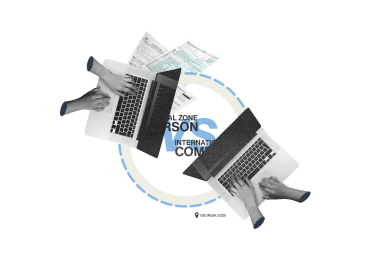Have you scrolled through LinkedIn recently? It is like every founder is swimming in an ocean of perpetual wins, a parade of perfection and if anyone ever loses, it’s transformed into a heroic “I was living in a box two years ago. Now I’m a CEO.” kind of comeback story. That’s how skilled we are at positioning ourselves – not reporting the bad stuff until we have some shiny news to wrap it up in.
Startups are like the modern world’s Wild West – where the narrative is always “Another day, another dollar (or a few million)”. But honestly, the daily grind of most founders looks a lot less like a highlight reel and more like deleted scenes from a low-budget horror movie.
Social media is a selectively filtered snapshot of the startup world. Behind every glowing update is the shadow of sleepless nights, the weight of unsaid worries, and the agonizing wait for things to click. One moment, you’re on cloud nine, visualizing that Forbes cover story; the next, you’re knee-deep in existential dread, coding snafus, and stress-eating.
STRESS AND AMBITION
Stress is the silent partner in every startup. It is that clingy, unwelcome guest. And while you may assume your peer founders are just stress-resistant superhumans – they’re just as lost, confused and close to their wits’ end as you are. They have just perfected the art of the (entrepreneurial) poker face. We all have. But can somebody tell me why we all act like our cortisol levels are a figment of our imagination? Newsflash: they are not. And acknowledging that stress is a universal experience isn’t a sign of weakness. It’s a sign of being, well, human. But we founders don’t like that. We operate in two modes: God complex (soaring high on vision) and existential crisis (getting slapped down to reality). We are delusional and have a damn hard time reconciling our limitations with our ambitions.
Ambition, like most things potent, can be a double-edged sword. On the one hand, it fuels our drive, gets us out of bed, and spurs us on during those godforsaken fundraising rounds. On the other hand, it can rob us of our sleep, peace, and, on tragic occasions, our lives. Many founders flirt with the line between their burning ambitions and fragile sanity. And too often, we’re convinced that to achieve the former, we must sacrifice the latter. But ambition, without sense, is a car without brakes. Sure, it’ll get you there fast, but will it get you there safely?
THE BALANCE FRAMEWORK
If only we applied the same thinking to our mental lives as we do to growing our startups. Some people have, like Andy Johns (growth legend via Facebook, Twitter, Wealthfront, and Quora), who left his high-performance career behind a few years ago after coming dangerously close to a heart attack. Let’s call it a Balance Framework, the three-fold framework for not losing your mind in the manic world of startups.
First, we need to define our range of tolerance. Just as you wouldn’t find a polar bear sunbathing in the Sahara, every living organism, including us, has its sweet spot – an optimal environment not just to survive in but to thrive in. This sweet spot, our ‘Range of Tolerance’, is a delicate balance. Taking on too much pushes us into zones of intolerance where very little life can be sustained. Our body will start signaling, but it takes a special kind of listening first to hear and then heed the signals. As Andy says:
„There are day-to-day stresses that are normal and we just have to put up with them, but then there’s the other stuff that’s the flashing red alarm. For me, and a lot of the research and literature supports this too, is, again, you can go back to animals. It’s like when their fundamental functions, when their core behaviors of diet, exercise, playfulness, socialization, sleep, when those things get disrupted, it’s a sign that there is something going on here that you need to take a look at.
So the same is true with people. If your sleep always sucks, if your relationships are constantly strained or frequently strained, if you’re ending your days with a bottle of wine, if your physical health is failing, if you’re constantly battling shallow breaths, tightness in your chest, those huge bags under your eyes, there’s so many ways that that can be measured so there’s really no excuse to say, “Oh, I just didn’t know.” I’d say it’s to look at those things. When those are suffering or when they’re really out of whack, it’s undeniable that there is something that is detrimental to your well-being that’s going on right now, and your body is telling you, “Stop. Something needs to change.”
Second, we need to challenge toxic beliefs. We all have beliefs. Some push us forward, and some tie weights to our ankles. The startup world, especially in tech, is rife with these dangerous beliefs. Thoughts like “Other founders manage stress better than me,” “This overwhelming feeling? It’s the founder tax,” or “I wish this feeling would just go away, but I don’t think it ever will” are just some of the myths floating around. Holding onto these beliefs can lead to further negative behaviors, such as withdrawal, avoidance, or even self-harm.
Third, you need to ask yourself – is this the right evolution of my life? Startup life is not for everyone, and that’s okay. It’s not an elite club. It’s a lifestyle. There’s this romantic vision of founding a startup that doesn’t hold up under close scrutiny. Sure, there are a few select cases where startups make sense. But they are so rare, and it’s so easy to fool yourself into thinking a lousy opportunity is a good one that it’s really worth slapping yourself once or twice before making a decision. Fuck that up, and you’ll find yourself in a state of slow and steady accumulation of the pressure, stresses, anxiety, near-constant panic, emotional ups and downs that come with being a founder, and frankly, an addiction to achievement as a way to feel good and to feel whole. Also, maybe (definitely) using a few bad words here and there too.
“People in these high-stress environments often find themselves facing alarming health issues before they hit 40. You’re likely to end up in the ER before you make your first million. Still, stress, in tiny doses, can actually be your pal. Think of it as weight training for your brain. A little challenge here, a hiccup there, and suddenly you’re mentally buff. But moderation is key. This ain’t about enduring more and more until you snap. It’s about gradually, smartly, extending your capacities. What’s an empire worth if you’re too burned out to enjoy it?”
Burnout has become disturbingly commonplace. People bragging about working around the clock, on weekends or during vacations, depicts a culture that glorifies relentless work. I recall reading about some lunatic wanting to travel across time zones to snatch a few extra working hours. It’s baffling.
There’s heroism in hustling, sure. But when we start to believe that we’re invincible or compare our tolerance to others, we walk an unsustainable tightrope. You wouldn’t push a car running on fumes, so why do it to yourself? Brakes exist for a reason; they’re for “slowing the fuck down.”
Co-founder & Growth Lead at Kernel


















